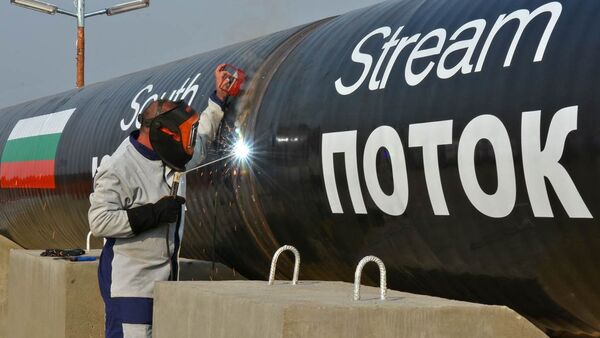BELGRADE, July 3 (RIA Novosti) – Bulgaria hopes to continue construction of the South Stream gas pipeline project across its territory in the next few weeks after receiving the relevant explanations from the European Commission, Bulgarian Foreign Minister Kristian Vigenin said Thursday.
“We are in direct and constant dialogue with the European Commission in regard to the conditions of completing the project and I hope that in the next few weeks we will receive explanations and can continue the work,” Vigenin said.
The Bulgarian foreign minister confirmed that the pipeline is extremely important for the energy security of southeastern Europe.
Vigenin’s comments were echoed by Serbian Foreign Minister Ivica Dačić, who stressed that implementation of the South Stream project is an issue of energy security and not relations with Moscow.
“Serbia would have lost a lot both economically and in terms of energy if the construction of South Stream had been halted. The European Commission has not offered any other alternative,” Dačić said adding the country would gain hundreds of millions of euros daily on future gas transit via the pipeline.
Russia earlier signed intergovernmental agreements with Bulgaria, Serbia, Hungary and Slovenia for the construction of the terrestrial part of the project.
In early June, Bulgarian media reported that the country’s Foreign Minister Plamen Oresharski ordered the suspension of work on the South Stream project pending consultations with the European Commission.
Previously, the European Commission notified Bulgaria of non-compliance with the EU rules while holding a tender for the builder and the operator of the Bulgarian section of the pipeline.
The European Commission believes Russia’s bilateral agreements with European transit countries are in breach of EU legislation, specifically the Third Energy Package, which stipulates that the companies involved in gas production cannot be the owners of long-distance pipelines in the region.
On June 17, Gazprom CEO Alexei Miller said the construction of the pipeline does not in any way contradict the regulations of the EU Third Energy Package.
The South Stream pipeline, expected to carry Russian gas across the Black Sea to Southern and Central European countries, is aimed at diversification of export routes for Russian gas.
Construction on South Stream was launched in 2012, with the first deliveries expected in 2016. The pipeline is planned to become fully operational in 2018.


